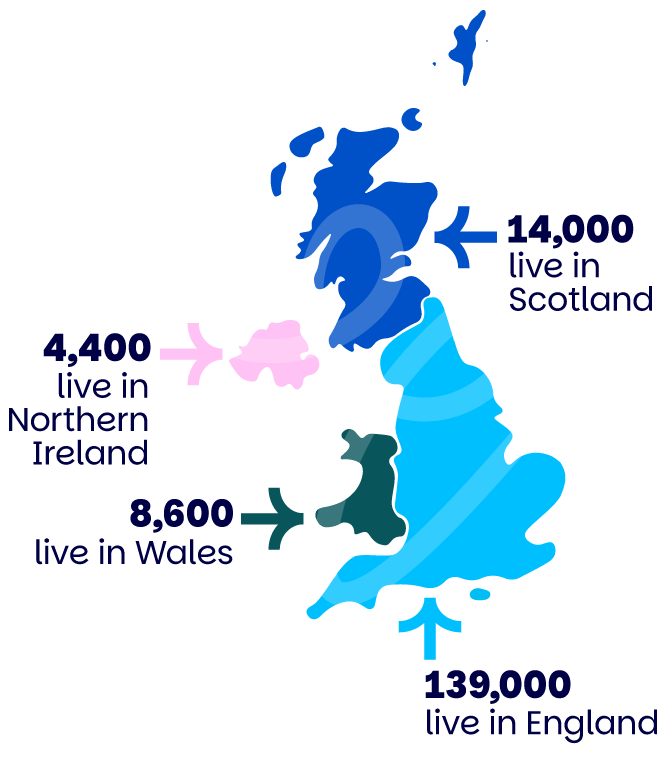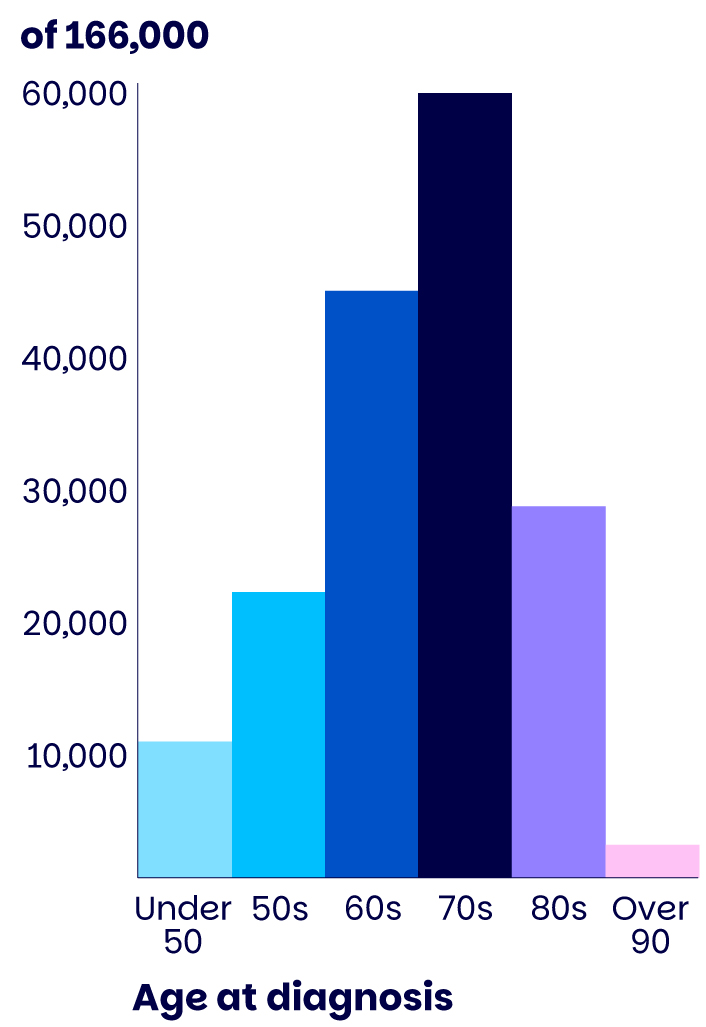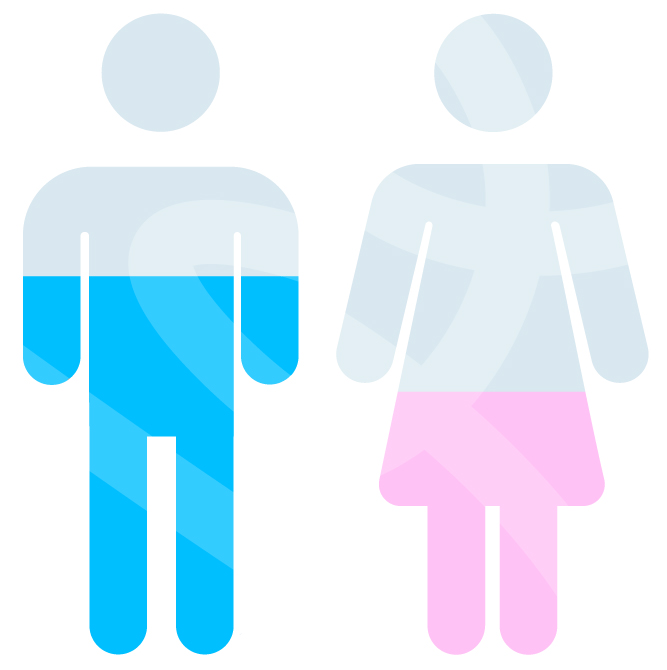Parkinson’s statistics
Our latest data on the number of people living with Parkinson’s in the UK.
How many people have Parkinson’s?
In the UK, the current total number of people diagnosed with Parkinson’s is around 166,000. Of those:
- 139,000 live in England
- 14,000 live in Scotland
- 8,600 live in Wales
- 4,400 live in Northern Ireland.

Parkinson's is on the rise. By 2030, we expect the number of people with Parkinson’s in the UK to reach 173,000, as the population grows and ages.
We think thousands more people are living with Parkinson’s but haven’t yet been diagnosed. Read our news story about the crisis in diagnosis.
How many people are diagnosed with Parkinson’s each year?
In 2025, around 28,000 people in the UK will be diagnosed with Parkinson’s. That’s someone being diagnosed every 20 minutes.

The number of people newly diagnosed with Parkinson’s grew each year up to 2020. But during the coronavirus pandemic, the number dropped dramatically and hasn’t returned to where we expect it to be. We think that’s being caused by long waiting times for diagnosis, not because the rate of growth of Parkinson’s is slowing.
Read our blog to find out more about the impact of the coronavirus pandemic on Parkinson’s.
Who is more likely to get Parkinson’s?
Age is the biggest risk factor for Parkinson’s. The older someone is, the higher their chance of developing it.
On average, people living with Parkinson’s were diagnosed at age 69. While the majority of people diagnosed with Parkinson’s are older, it affects people of all ages. When people living with Parkinson’s today were diagnosed:
- over 1 in 3 were of working age (under 67)
- 1 in 16 were under 50.

A diagnosis before the age of 50 is considered to be young onset Parkinson’s. Find out more about young onset Parkinson’s.
More men than women get Parkinson’s. 59% of people living with Parkinson’s in the UK today are men.

We don’t know why men are more likely to develop the condition than women. It may be due to a combination of biological factors (such as hormones or genetics), lifestyle (such as exposure to chemicals) and other factors.
Parkinson’s in the UK: what do we know?
Our study looked at 18 million patient records alongside hospital admissions data across the UK. Our blog explores what we’ve learned from the study. And how we’re using these learnings to drive forward better research, treatment, and care for people with Parkinson’s.

